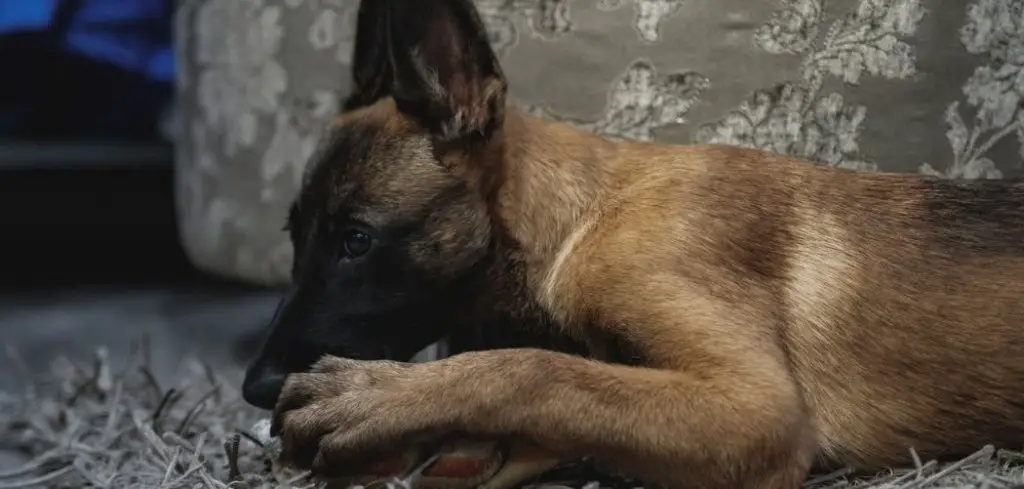It’s alarming and unpleasant to witness your dog repeatedly eating poop, whether it’s their own or that of another animal. Beyond being unhygienic, this behavior can signal underlying health or behavioral issues that need attention.
We outline the common causes of a dog excessively eating poop, what you can do at home, and when to seek veterinary help.
Dog Excessively Eating Poop — Why It Happens
A dog may excessively eat poop due to nutritional deficiencies, behavioral issues, digestive disorders, or even mimicry from their environment.
In some cases, the behavior stems from boredom or anxiety, while in others, it may indicate an imbalance in the diet or a problem with nutrient absorption.
Puppies may eat poop out of curiosity or because they see their mother doing it.In more serious scenarios, medical issues like diabetes or Cushing’s disease could be contributing to the problem.
This behavior, known as coprophagia, can be complex and frustrating for dog owners.

Dog Excessively Eating Poop: Common Causes
Nutritional Deficiencies
If your dog is lacking key nutrients, particularly digestive enzymes or B vitamins, they may turn to eating feces as a way to compensate.
Dogs on low-quality diets or those fed an imbalanced homemade regimen may not be getting everything their body needs. Poor nutrient absorption from gastrointestinal disorders can also contribute.
Owners might notice other signs, such as weight loss, dull coat, or chronic digestive issues.
In these cases, the behavior is not just unpleasant — it’s a sign your dog may not be receiving the nutrition they require to thrive.
Read more: Dog Excessively Eating (How to know when it’s serious)
Behavioral Issues and Stress
Anxiety, boredom, or attention-seeking behavior can drive dogs to start eating feces.
Dogs left alone for long periods, confined in small spaces, or lacking mental stimulation may develop coprophagia. In some cases, the behavior begins as a reaction to stress and becomes habitual.
You might observe your dog engaging in other repetitive behaviors like tail chasing, excessive licking, or pacing.
Behavioral causes are serious because they can signal poor welfare and increase the risk of further anxiety-driven actions.
Parasites or Malabsorption Disorders
Intestinal parasites or conditions like exocrine pancreatic insufficiency (EPI) can prevent dogs from properly digesting and absorbing nutrients.
As a result, their stool may still contain undigested food, making it more appealing to consume. Dogs with malabsorption issues may appear constantly hungry, despite eating.
Other signs might include chronic diarrhea, large volumes of feces, weight loss, and a lackluster coat.
Underlying medical causes like these require veterinary diagnostics and long-term management.
Mimicry and Learned Behavior
Puppies often explore their world through their mouths, and some learn to eat poop by observing their mother cleaning the den.
If not corrected early, this learned behavior can persist into adulthood. Dogs in multi-dog households may copy others engaging in the same act.
You might also notice this behavior during walks if your dog picks up feces from other animals.
Though mimicry may seem less concerning than a medical cause, it can still pose health risks and become an entrenched habit.
Poor Cleanliness or Over-Correction
Some dogs begin eating poop out of a misguided effort to clean up after themselves — particularly if they’ve been punished for house soiling.
Fear of reprimand may drive the dog to hide the evidence, resulting in compulsive stool eating. This is especially common in young or newly adopted dogs who are unsure of their environment.
If you notice nervous or guilty behavior around potty time, this may be the cause.
It’s serious because it reflects fear-based learning, which can lead to broader behavioral problems.
Underlying Medical Conditions (e.g., Diabetes, Cushing’s)
Chronic illnesses like diabetes or Cushing’s disease can increase appetite or change how a dog processes food.
In these cases, dogs may feel ravenously hungry and resort to eating anything they can find — including feces.
Other red flags might include increased thirst, urination, panting, or hair loss.
When a dog suddenly develops this habit alongside other health changes, it’s critical to look for a deeper medical cause.
What to Do If Your Dog Is Excessively Eating Poop
Start by evaluating your dog’s diet. Make sure they’re on a high-quality, balanced food appropriate for their age and size. A veterinarian can help assess whether supplements or a diet change might help.
Ensure your dog is parasite-free with routine deworming, especially if they frequently explore areas where other animals defecate.
Clean up stool promptly from your yard or litter areas to reduce access. Consider leash walks in areas with less animal traffic.
If behavioral issues are suspected, increase your dog’s mental and physical enrichment. Try puzzle feeders, new toys, or more frequent walks.
Avoid punishing your dog for the behavior. Instead, redirect them, reward clean behavior, and consult a trainer or behaviorist if needed.
When to Call or Visit Your Vet
Contact your veterinarian if your dog’s coprophagia begins suddenly or is accompanied by other health changes such as:
Vomiting, diarrhea, or weight loss
Constant hunger despite adequate feeding
Behavioral changes like anxiety or restlessness
Increased drinking or urination
Weakness or lethargy
If the behavior persists despite dietary adjustments or training efforts, a full veterinary workup is essential.
Your vet may run bloodwork, fecal exams, or even imaging studies to rule out underlying causes.
Read more: Dog Excessively Eating Snow (Why it happens and what it means)
Key Takeaway
Coprophagia, or the act of dogs excessively eating poop, can stem from a variety of causes — from simple curiosity to more serious nutritional or medical conditions.
While it may be distressing, this behavior often has a treatable root. Addressing your dog’s diet, environment, and health status are critical first steps.
If you’re unsure why your dog is engaging in this behavior, don’t hesitate to involve your veterinarian.
Prompt action helps ensure your dog’s health, safety, and well-being — and your peace of mind.
